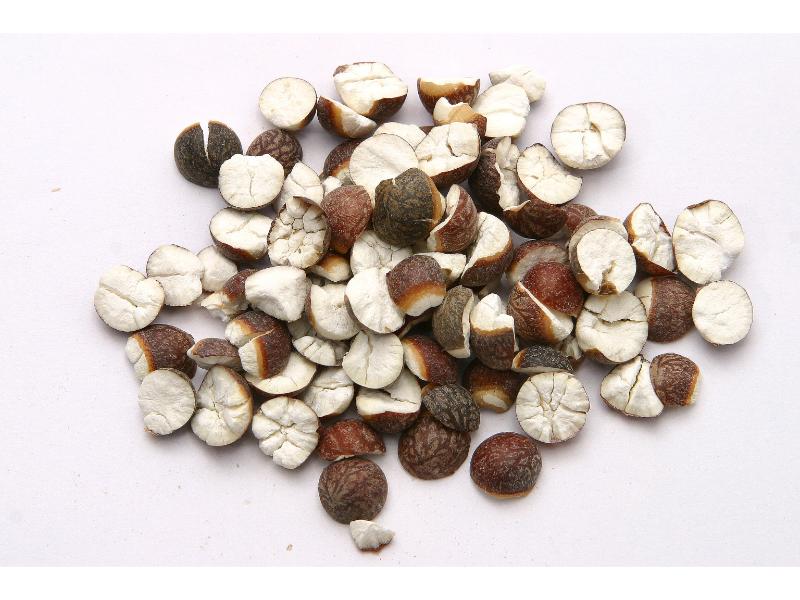Search in medicinals
Euryales Semen
Euryale [seed]
芡实 〔芡實〕 qiàn shí

Alternate Chinese names: 刀芡 dāo qiàn; 苏芡 sū qiàn; 鸡头 jī tóu; 雁头 yàn tóu; 鸡头米 jī tóu mǐ; 鸡头实 jī tóu shí; 鸡头果 jī tóu guǒ; 卵菱 luǎn líng; 鸡头实 jī tóu shí; 鸡头苞 jī tóu bāo; 鸿头 hóng tóu
Kingdom: Plant
Origin in PRC Pharmacopoeia: Euryale ferox Salisb. (PRC Pharmacopoeia)
Origin in unofficial sources: Euryale ferox Salisb.*
Use: Medicinal and alimentary
Category: Astringing agents / Intestine-astringing diarrhea-checking agents
Properties: Sweet, astringent; balanced.
Channel entry: Spleen and kidney channels.
Actions and indications:
- Boosts the kidney and secures essence: Seminal emission; seminal efflux.
- Fortifies the spleen and checks diarrhea: Enduring diarrhea from spleen vacuity.
- Eliminates dampness and checks discharge: Vaginal discharge.
Dosage and method: Oral: 10–15g in decoctions. Raw qiàn shí is preferred for seminal emission and vaginal discharge while the stir-fried form is preferred for supplementing the spleen and checking diarrhea.
Warnings: Because of its astringent nature, qiàn shí is not appropriate for patients with inhibited urination or defecation.
Product description: The dry seed is spherical, with a diameter of 6 mm. A third of the length from one end is white in color, with a round depression, while the rest is reddish brown. The exterior surface is smooth with irregular wrinkles. This seed is dry and brittle, breaking open to reveal an uneven farinaceous white fracture. It has a faint, inoffensive odor.
Quality: Clean plump farinaceous seeds are the best.
Production area: Húnán, Jiāngsū, Guǎngdōng.
Etymology: The alternate names jī tóu 鸡头, chicken's head,
and yàn tóu 雁头, wild goose's head,
are descriptive of the form of this fruit.